Hammered by surging energy costs and a flood of cut-price Chinese imports, Germany's steel industry has been mired in deep crisis for several years.
After talks with industry leaders in Berlin Thursday, Chancellor Friedrich Merz backed measures including hiking tariffs on foreign imports and slashing energy costs to help the sector.
Here are some questions and answers on the subject:
- Why is steel important for Germany? -
Germany's strength as a leading industrial nation is strongly linked to steel production, which rose in tandem with the construction of the railways, military build-ups during two world wars, and the economic revival of the 1950s.
The country remains Europe's top steel producer, and the seventh largest in the world, according to the World Steel Association.
Steel is widely used in many sectors in Europe's biggest economy, from construction to automotive and mechanical engineering, and is an essential component of exports.
The sector directly provides jobs to only around 80,000 people but steel-intensive industries employ around four million people, according to German industry federation WV Stahl.
- Why is the sector in crisis? -
China, the world's top producer, has for years been flooding world markets with large quantities of steel at knock-down prices, undercutting German and other European producers.
Problems worsened for the power-hungry sector when Russia's 2022 invasion of Ukraine sent energy costs surging. While they have since come down, they remain well above levels seen before the war.
In recent times, steel production in Germany has languished at 10 to 15 percent below 2022 levels.
A growing number of steel plants in the country are being mothballed: a quarter were temporarily shuttered in 2024, according to the Agora Industrie think tank.
The sector's traditional giants meanwhile are sliding into crisis. Thyssenkrupp plans to cut around a third of its steel division's workforce and slash production by around 30 percent by 2030.
Merz on Thursday said Germany would support the sector by seeking to bring down energy prices.
"Without an effective reduction in electricity prices, this industry will not be viable," he said.
- What are the solutions? -
The EU in October floated plans to double tariffs on foreign steel -- taking a leaf from US President Donald Trump's book to shield the bloc's struggling industry from cheap Chinese exports.
The bloc's executive proposed hiking levies on steel imports to 50 percent, and slashing the volume allowed in before tariffs apply by 47 percent.
Following Thursday's talks, which brought together the country's top producers as well as leaders from states where the industry is a major employer, Merz said Germany would back the plans.
"I will support these proposals to the best of my ability and hope that appropriate regulations will be put in place," Merz said.
The chancellor also said he would lobby the EU to consider ways to encourage businesses to buy European-made steel.
The days of open markets and fair competition "are unfortunately over", Merz said.
"That is why we must protect our markets. That is why we must protect our manufacturers."
Berlin is also planning to begin a scheme in January to subsidise power costs for industry, including steel producers.
- A green future? -
The sector is betting on the production of "green" steel -- made using hydrogen derived from renewable energies -- to meet climate goals.
But the shift is challenging as it requires huge investments from steel companies with already strained finances.
Thyssenkrupp's plans to produce green steel at its historic site in the western city of Duisburg were originally scheduled for 2027 but they are now hanging in the balance.
Indian group Jindal, which recently made a takeover bid for Thyssenkrupp's steel unit, has pledged to advance the group's green ambitions if it takes control.
Merz has in the past faced criticism for questioning whether green steel can be produced competitively on a large scale.
He did not address the issue on Thursday beyond saying that all at the summit had reached a "common understanding regarding the pace of change".
kas-sr-fec/lth
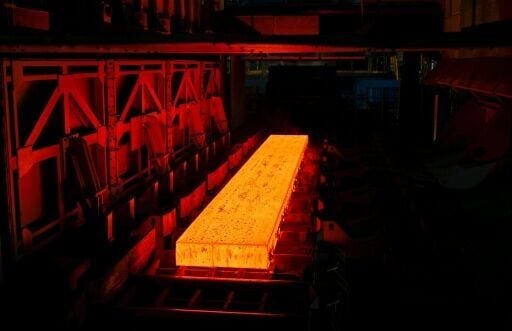

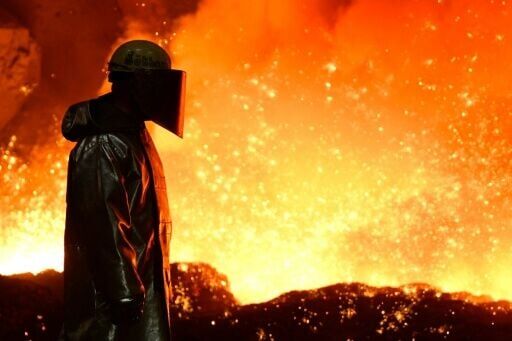
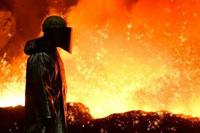
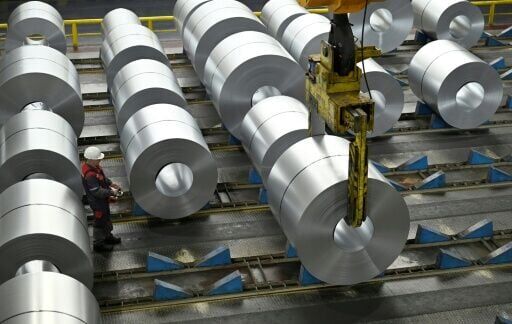
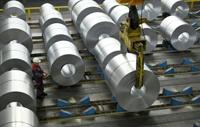
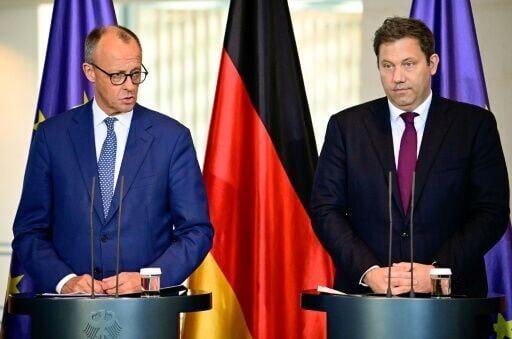






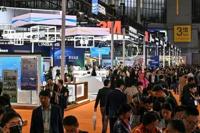







(0) comments
Welcome to the discussion.
Log In
Keep it Clean. Please avoid obscene, vulgar, lewd, racist or sexually-oriented language.
PLEASE TURN OFF YOUR CAPS LOCK.
Don't Threaten. Threats of harming another person will not be tolerated.
Be Truthful. Don't knowingly lie about anyone or anything.
Be Nice. No racism, sexism or any sort of -ism that is degrading to another person.
Be Proactive. Use the 'Report' link on each comment to let us know of abusive posts.
Share with Us. We'd love to hear eyewitness accounts, the history behind an article.